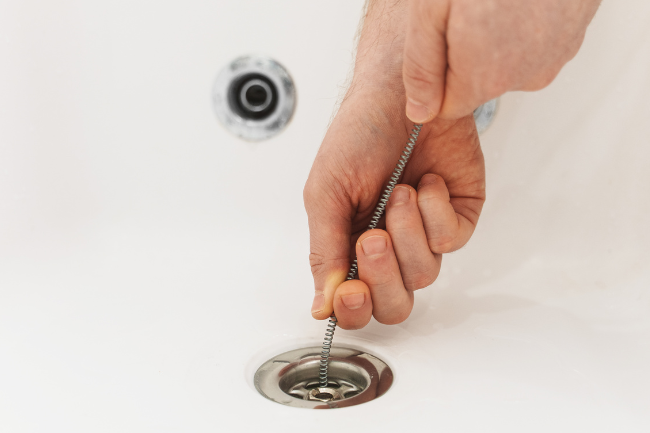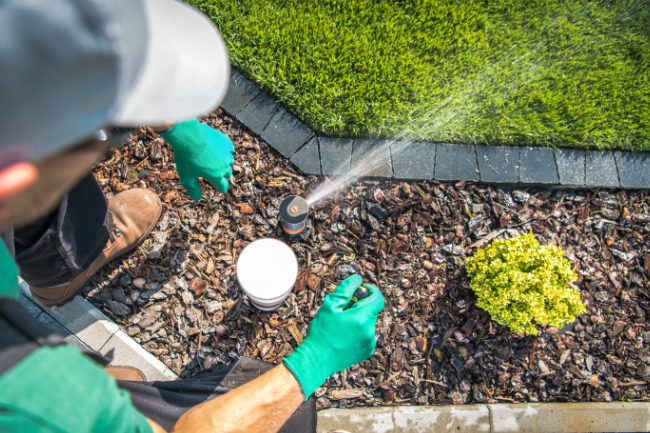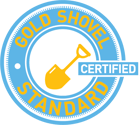Preventative Plumbing Maintenance That Could Save You Thousands
Posted by William Heinselman on
 If you’ve ever been faced with broken or damaged home water pipes, high water bills or severe performance issues, you’ve likely asked yourself what you could have done to avoid these problems altogether. The best way to preserve the health and function of your plumbing is to think preventatively; to take effective countermeasures, such as cleaning or self-inspecting your home’s plumbing, regularly.
If you’ve ever been faced with broken or damaged home water pipes, high water bills or severe performance issues, you’ve likely asked yourself what you could have done to avoid these problems altogether. The best way to preserve the health and function of your plumbing is to think preventatively; to take effective countermeasures, such as cleaning or self-inspecting your home’s plumbing, regularly.
Preventative plumbing maintenance can help you save hundreds, or even thousands, of dollars on plumbing repair by resolving minor issues before they turn into full-scale pipe disasters. It’s much more affordable to resolve clogs or minor flow problems proactively than to let them further develop, and eventually ruin your pipes.
That said, preventative maintenance tasks go beyond flushing your drains with hot water, or using chemical cleaning products (which you should generally avoid anyway, for reasons we will highlight in this blog post). It’s important that you not only practice regular self-maintenance, but also use the safest and most effective techniques.
In this blog, we’ll outline several steps you can take to catch clogs early on and maintain your pipes proactively; plumbing practices that can wind up saving you thousands of dollars in preventative care.
Know What to Look for When Caring for Your Plumbing
The first step of preventative plumbing care revolves around knowing what to look for during self-inspections; the red flags and common warning signs of impending plumbing failure. Generally, any abnormalities in the following should be addressed right away, as they can be telling signs of developing pipe problems:
- Water flow or pressure issues; poor flow can indicate a crack or fracture somewhere in your pipe system, or faulty pipe joints
- Abnormally high water bills, or sudden spikes in consumption, which are additional signs of pipe damage
- Drain backup and frequent clogging
- Gunk or residue from faucets and water fixtures; particularly, rust particles or material fragments
To ensure your plumbing system performance and catch issues early on, you should self-inspect your plumbing at least once every month, and have a professionally plumbing specialist evaluate your pipes once per year. There are many small, easily missed performance factors that everyday homeowners miss, which can be caught by specialists before they develop into full plumbing disasters. You can’t preventatively care for your home plumbing pipes without knowing what to look for.
Best Techniques for At-Home Plumbing Maintenance
For preventative pipe maintenance, there are certain techniques you should use to tend to your plumbing; steps that can end up saving you hundreds (or even thousands) of dollars on later pipe repairs and professional treatment.
For starters, if you’re home plumbing and drains are frequently clogged, try using DIY vinegar and baking soda flushes to dislodge clogged materials instead of commercial cleaning products. These products can actually end up damaging your pipes if used extensively; it’s much safer to use non-corrosive, homemade mixtures to break down clogs.
You can also use carbonated soda for a similar effect, as the acids in everyday cola can effectively remove clogged materials, much safer than commercial, chemical based products.
If you’re dealing with particularly stubborn clogs, you can also use professional-grade drain snakes, or augers to eliminate persistent clogging. These tools, the same that plumbing specialists use to remove debris, can typically be found at your local home improvement or hardware store. For a more in-depth guide to using drain snakes effectively, check out our blog on the topic here.
Perhaps the best way to preventatively maintain your home plumbing systems is to treat at-risk drains and pipes with more care; avoid pipe damage and wear by treating your plumbing right in the first place.
One of the easiest ways to do this is to watch what you let enter your drains. This applies to kitchen, shower and sink drains; essentially, any drain opening in your plumbing. You should avoid letting any of the following enter your drains, as they can easily damage pipes or result in clogs:
- Overly fibrous or starchy food products
- Animal cartilage or bones
- Cooking grease and oils
- Plastics, such as bags or wrappers
- Hair
- Hygiene products
If you’d like more information on preventatively maintaining your pipes, don’t hesitate to contact a professional plumber in your area. In Sacramento, those professionals are the trained specialists at Express Sewer & Drain.

Topics: Home Plumbing, Drain Cleaning and Repair






